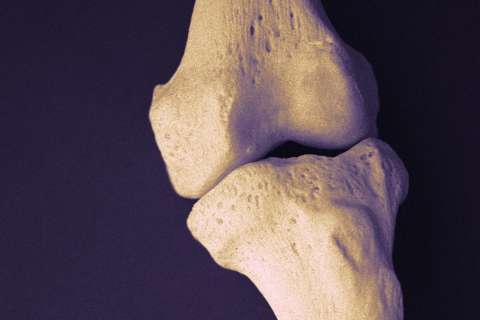Dear Doctors: I have developed pain in my right hip that runs down my thigh and calf. An orthopedic specialist who looked at my scans says it may be a pinched nerve. But my physical therapist says it is inflammation. Can it be both? Is there a solution?
Dear Reader: We should start with a bit of anatomy. The hip joint is the largest weight-bearing joint in the body. It's where the rounded top of the femur, or thigh bone, fits into a cuplike depression in the pelvis. This type of juncture, known as a ball-and-socket joint, allows a wide range of motion. Tendons, ligaments and muscles provide the hip with stability and structure.
Two main nerves -- the femoral nerve at the front of the femur and the sciatic nerve at the back -- help with movement and provide sensation in the hip, legs, ankles and feet. A smaller nerve, known as the obturator nerve, helps with movement and delivers sensation to the inner thigh.
A pinched nerve can cause the radiating pain that you have described. It can also result in a dull ache in the pelvis and buttocks, numbness or sharp tingling that extends down the hip, muscle weakness and limited range of motion. These symptoms arise due to excessive or sustained pressure on a nerve by any of the surrounding tissues. These may be bone, muscle, tendons, ligaments or a slipped or herniated disc in the spine. In some cases, symptoms can be severe enough to interfere with standing and movement.
This type of injury can have a variety of causes. They include prolonged sitting, repetitive motion, bone spurs, arthritis, overuse, injury, swelling and being overweight. Actions that put stress on the hips, such as lifting or carrying a heavy weight, can cause misalignment that can lead to a pinched nerve.
Your physical therapist is correct that a pinched nerve is often accompanied by inflammation. For that reason, treatment usually begins with rest. This allows time for the swelling that often arises with inflammation to begin to ease. Over-the-counter anti-inflammatory medications, such as ibuprofen or naproxen, can be helpful. For persistent pain, your doctor may prescribe an oral corticosteroid.
In addition to the work that you do together, your physical therapist will be able to give you gentle exercises to do at home. These will focus on both stretching and strengthening the muscles of your abdomen, pelvis and lower back. Some people find that working with a chiropractor can be helpful.
Staying aware of your posture is important. When standing, be sure to keep the spine properly aligned, with your weight evenly distributed between both feet. When sitting, avoid crossing your legs, as this creates torque on the pelvis. If you are carrying any kind of weight, such as a bag of groceries, remember to keep muscles of the core engaged.
Although a pinched nerve isn't a threat to health, it can interfere with quality of life. If rest and gentle exercise don't bring any relief, it's a good idea to see your doctor again for further evaluation.
(Send your questions to [email protected], or write: Ask the Doctors, c/o UCLA Health Sciences Media Relations, 10960 Wilshire Blvd., Suite 1955, Los Angeles, CA, 90024. Owing to the volume of mail, personal replies cannot be provided.)





